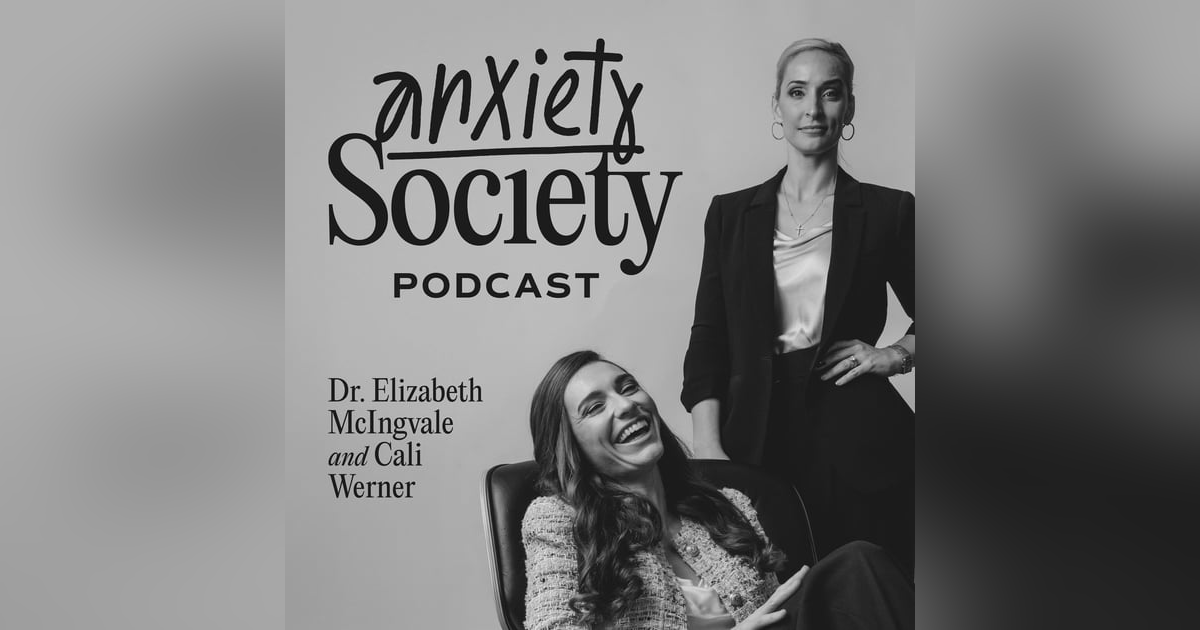Gaps In Treatment Between Medicine & Mental Health


Episode Overview:
In this compelling episode of The Anxiety Society Podcast , hosts Dr. Elizabeth McIngvale and Cali Werner sit down with nationally recognized expert Dr. Robert Smith to explore the urgent intersection of medical and mental health care in the United States. Dr. Smith, author of Has Medicine Lost Its Mind? , shares eye-opening research that reveals why 75% of mental health care is provided by primary care doctors who lack adequate training in this field. Together, they unpack the systemic challenges, discuss the gaps within both medical and mental health professions, and offer practical guidance for individuals seeking quality care. This episode is a frank, informative, and urgent call to action for reform, evidenced-based training, and public advocacy.
Key Topics Discussed:
- Introduction to Dr. Robert Smith and his groundbreaking work in patient-centered mental health care
- Personal "anxious moments" shared by the hosts and Dr. Smith
- The critical shortcomings of mental health training in medical education: only 2% focus on mental health
- Why 75% of mental health care is delivered by undertrained primary care physicians and the dangerous consequences
- The disconnect between medical training and real-world mental health needs
- The role and limitations of psychiatrists, psychologists, and counselors in current care models
- The prevalence of unregulated and unlicensed mental health support, including concerns with life coaches
- The need for integrated, supervised, and evidence-based mental health training for all medical providers including nurse practitioners and PAs
- The impact of untreated mental health disorders on physical health, medical outcomes, and healthcare costs
- Dr. Smith’s advocacy for a national investigation and systemic reform, inspired by historical public health movements
- Practical advice for patients on advocating for themselves and seeking appropriate referrals
- Clarifying the importance of specialized, evidence-based mental health care and how to identify qualified providers
- Hopeful strategies and self-help practices individuals can engage in while systemic changes take place
Notable Quotes & Moments:
- “Seventy-five percent of all mental health care in the US is provided by primary care docs like me. Here’s the problem: they forgot to train us in mental health care.” — Dr. Robert Smith [07:22]
- “Doctors like me prescribing opioids for which we are not trained are killing 15 to 17 thousand people a year in opioid overdoses.” — Dr. Robert Smith [08:02]
- “Most people think their mental health care is as good as their medical care. It’s not. And medicine isn’t doing anything about it.” — Dr. Robert Smith [06:50]
- “Mental health clinicians are often trained in non-evidence-based interventions. You can’t go to an oncologist who practices outside of evidence-based care, but in mental health, this happens all the time.” — Elizabeth McIngvale [30:16]
- “If you think you have a mental health problem, tell your doctor directly and ask for a referral to a qualified mental health professional.” — Dr. Robert Smith [18:36]
- “The squeaky wheel gets the grease. Be forward. Get your family involved. Don’t isolate yourself.” — Dr. Robert Smith [42:40]
- “This book is for the public, not just medical or mental health professionals. We want people to get angry enough to demand change.” — Dr. Robert Smith [25:02]
Timestamps for Significant Segments:
- 00:00 – Welcome and introductions by Elizabeth McIngvale and Cali Werner
- 02:30 – Introduction of Dr. Robert Smith and his work
- 03:30 – Sharing personal anxious moments
- 06:42 – Overview of Has Medicine Lost Its Mind? by Dr. Smith
- 07:22 – Major problem: mental health care mostly provided by untrained primary care doctors
- 11:20 – Breakdown of medical school mental health training
- 14:30 – Discussion on confidence, training, and unlicensed mental health providers
- 16:30 – How to start fixing the mental health care crisis—training and systemic change
- 24:00 – Roadmap for reform and public advocacy
- 30:00 – Challenges within the mental health field itself—need for evidence-based treatments
- 38:50 – How patients can advocate for their own care effectively
- 43:00 – Advice on choosing qualified specialty mental health providers
- 44:30 – Episode wrap-up and final thoughts
Resources & Links Mentioned:
- Dr. Robert Smith’s book: Has Medicine Lost Its Mind? — essential reading for policymakers, healthcare professionals, and concerned citizens
- Dr. Robert Smith’s website: RobertCSmithMD.com — Access the “Act Now” letter campaign to contact policymakers and advocate for change
- Anxiety Society Podcast website: anxietysocietypodcast.com
- Instagram: @theanxietysocietypod – For more content and community engagement
Call to Action for Listeners:
- Subscribe to The Anxiety Society Podcast on your favorite platform to never miss an episode.
- If you found this episode valuable, please leave a review to help us reach and support more people navigating anxiety and mental health challenges.
- Visit RobertCSmithMD.com and use the “Act Now” feature to send a letter to national leaders demanding reform in mental health care training and delivery.
- Follow us on Instagram @theanxietysocietypod to join the conversation, submit questions, and access additional resources.
- Share this episode with loved ones, especially those who may be dealing with mental health issues or interested in healthcare reform.
- Thank you for listening and being part of the movement to improve mental health care for all. Together, we can change the anxiety society.


